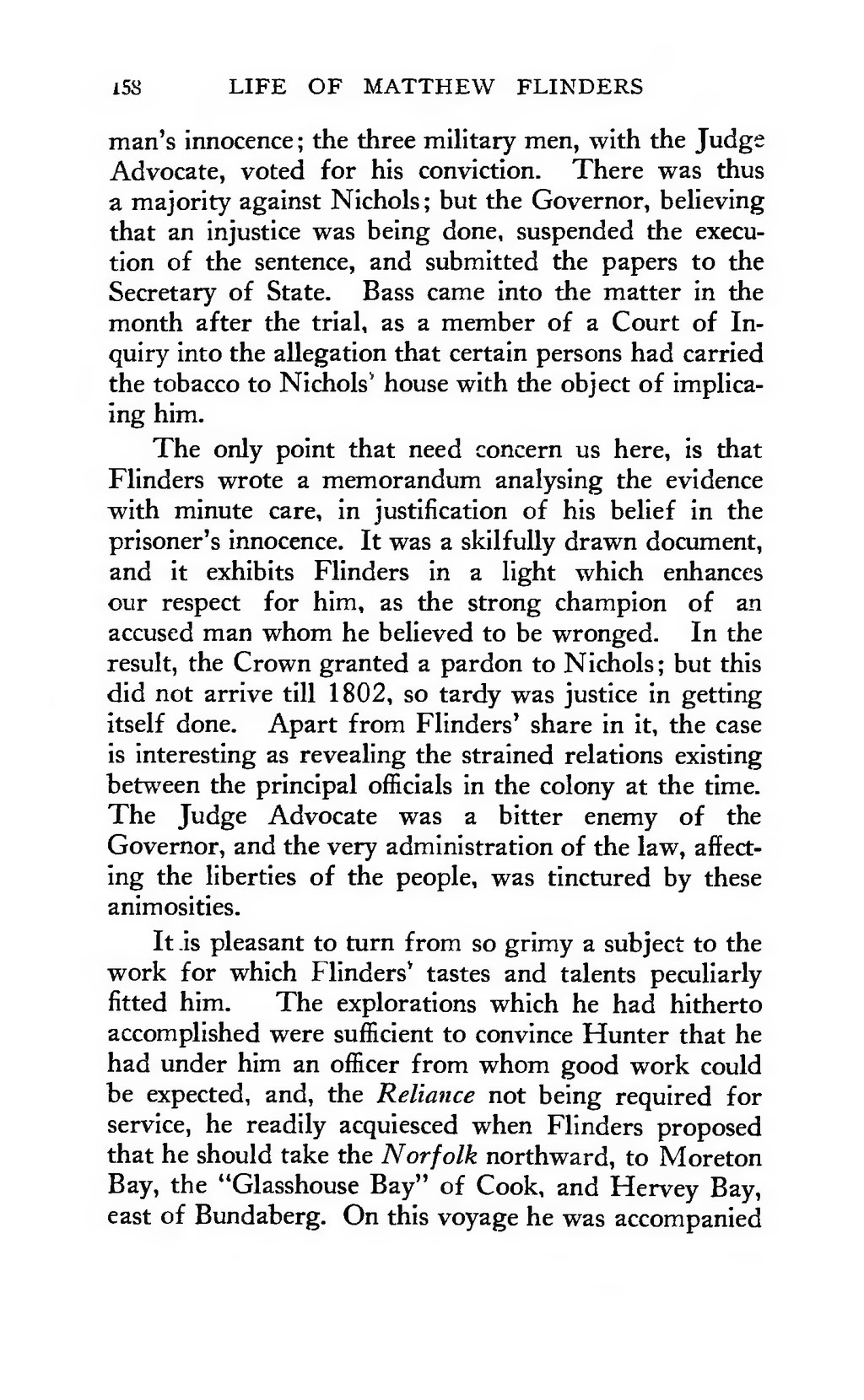man's innocence; the three military men, with the Judge Advocate, voted for his conviction. There was thus a majority against Nichols; but the Governor, believing that an injustice was being done, suspended the execution of the sentence, and submitted the papers to the Secretary of State. Bass came into the matter in the month after the trial, as a member of a Court of Inquiry into the allegation that certain persons had carried the tobacco to Nichols' house with the object of implicating him.
The only point that need concern us here, is that Flinders wrote a memorandum analysing the evidence with minute care, in justification of his belief in the prisoner's innocence. It was a skilfully drawn document, and it exhibits Flinders in a light which enhances our respect for him, as the strong champion of an accused man whom he believed to be wronged. In the result, the Crown granted a pardon to Nichols; but this did not arrive till 1802, so tardy was justice in getting itself done. Apart from Flinders' share in it, the case is interesting as revealing the strained relations existing between the principal officials in the colony at the time. The Judge Advocate was a bitter enemy of the Governor, and the very administration of the law, affecting the liberties of the people, was tinctured by these animosities.
It is pleasant to turn from so grimy a subject to the work for which Flinders' tastes and talents peculiarly fitted him. The explorations which he had hitherto accomplished were sufficient to convince Hunter that he had under him an officer from whom good work could be expected, and, the Reliance not being required for service, he readily acquiesced when Flinders proposed that he should take the Norfolk northward, to Moreton Bay, the "Glasshouse Bay" of Cook, and Hervey Bay, east of Bundaberg. On this voyage he was accompanied
